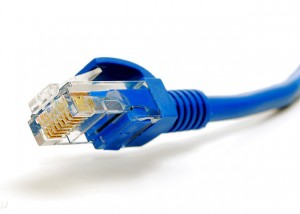CUBA: ‘QUE VIENE INTERNET !’
En Cuba, se habla de la Red con tintes animistas, un ente que lleva y trae malas noticias, confirma y desmiente rumores.
Para muchos cubanos Internet tiene un alma esquiva y caprichosa. La mayoría no sabe qué aspecto tiene, pero la desean como a una amante díscola. Lo comprobé muchas veces en la playa de Siboney (Santiago de Cuba, a 969 kilómetros de La Habana), cuando aún estaba abierto el agujero por el que llegaría desde Venezuela un cable submarino de fibra óptica. Si uno metía la cabeza, y mucha gente lo hacía, solo veía unos tubos de plástico gris y unas cintas adhesivas color naranja, pero nadie dudaba de que por ahí regurgitaría algún día algo que sería, sin lugar a dudas, Internet. Cerca del agujero, discretamente custodiado por una pareja de policías, la gente se reunía a esperar el autobús:
–¿Y eso cuándo lo van a tapar?–, decía alguno.
–No te quejes que por ahí va a salir Internet–, se le respondía.
En Cuba, se habla de la Red con tintes animistas, un ente que lleva y trae malas noticias, confirma y desmiente rumores y, sobre todo, destapa spoilers de la telenovela de turno. “Lo dijo Internet”, es una frase que saldrá antes o después en las conversaciones. Y va a misa. Un buen final para zanjar una discusión: “Lo dice Internet y punto”.
Casi dos años estuvo abierto el agujero sin que nada saliera de su interior. Mucho menos Internet. Entretanto llegaron las primeras apariciones a través de un floreciente mercado negro que gestiona correos electrónicos, paquetes de contenidos y cuentas de Skype. La gente se hace con un pen drive y un disco duro externo –son buenos regalos que hacer a un cubano–, y ahí trafican con contenidos sacados de la Red. No vaya usted a pensar, querido lector, en material sensible para la NSA u otros órganos de espionaje global. No. Los cubanos violan varias leyes para ver partidos de fútbol atrasados, películas, dibujos animados, programas de la televisión de Miami o las series españolas Cuéntame y Aída.
Los que no entraron en el mercado negro, por falta de dinero o de audacia, siguieron con su fe puesta en aquel agujero que un buen día se cerró con la noticia de que el imperialismo yanqui había interceptado el viaje de Internet. Luego se supo que no, que el cable había completado su travesía por el Caribe pero que Internet llegaría después. Cuando fuera el momento. En junio de 2013 el Gobierno autorizó la apertura de 118 “salas de navegación” y la gente pensó que era “el momento”. Por entonces, también echó a correr el rumor de que en septiembre de este año se podría contratar ADSL en las casas. Pero Etecsa, la empresa estatal de telecomunicaciones, lo desmintió en marzo pasado, así como las tarifas de lujo asiático que se habían filtrado: una conexión de 20 horas mensuales a una velocidad de entre dos y cuatro megabytes valdría, según la versión callejera, 10 pesos convertibles (13 euros). El salario medio de un cubano no supera los 20. ¿Dedicaría usted el 50% de sus ingresos a su ADSL? Pues los cubanos, tampoco. De momento Etecsa se limita a recordar gentilmente en un comunicado que “el acceso a Internet se realiza desde las entidades estatales y nacionales autorizadas para ello”.
Así las cosas, en mi último viaje a Cuba tampoco había llegado “el momento”. Tuve que elegir entre la lenta conexión autorizada de un hotel a seis euros la hora, registrando mi nombre y número de pasaporte, o el mercado negro con la misma lenta conexión, pero anónima y más barata. Elegí muerte. Unos amigos me llevaron a un bloque de dos plantas y me señalaron un piso: “Es ahí”. Llamaron a la puerta: “Sube, te esperamos”
Una vez arriba, y practicado el ritual convenido para neutralizar la desconfianza genética de los cubanos, fui conducida a la habitación del fondo. Había tres PC antiguos, dos ocupados. Para usar el único disponible tomé asiento en una cama de matrimonio junto a un turista canadiense. Desde allí ambos intentábamos acceder a una versión decimonónica de Internet después de un largo ayuno digital forzado. Mientras el milagro tenía lugar, le hacíamos sitio a la señora de la casa que guardaba la ropa interior en la cajonera que usábamos como escritorio. En lo que doblaba bragas y calcetines, la buena mujer nos advertía de que Internet tenía sus días y que hoy estaba “de pinga”.
Cuando tuve delante la bandeja de entrada de Gmail me sentí una elegida. Lo era. Mi compañero de cama y conexión no autorizada pasaba por el mismo trance espiritual. “¡Dense prisa que se va [Internet] y hay cola!”. Con un grito, la señora rompió el encanto y nos hizo recordar que Internet no era un objeto de culto; que era, sobre todo, su negocio, cuyo horario de cierre coincidía con el fin de la jornada laboral del centro estatal que le pasaba bajo cuerda, y pesos convertibles mediante, la conexión autorizada que ella convertía en ilegal.
Hice lo que pude. Nunca conseguí descargar Facebook ni chatear por Gtalk. Cuando consumí mi tiempo, pagué dos pesos convertibles y bajé corriendo las escaleras. Abajo me esperaban tres cubanos ansiosos: “Bueno, ¿y qué?, ¿qué sale hoy en Internet?”.
El Pais, Spain, Karelia Vazquez/InternetPhotos/TheCubanHistory.com
CUBA: HERE COMES THE INTERNET !
The CUban History, Hollywood.
Arnoldo Varona, Editor.
Frente al Morro, La Habana, Cuba. Cuba en Fotos.

CUBA: ‘HERE COMES INTERNET!’
In Cuba, we speak of animistic Network with dyes, an entity that carries and brings bad news confirms and refutes rumors.
For many Cubans Internet has an elusive and capricious soul. Most do not know what he looks like, but the desire as a wayward lover. I checked many times in Siboney Beach (Santiago de Cuba, 969 kilometers from Havana), while still open the hole to come from Venezuela a submarine fiber optic cable. If you got the head, and many people did, only saw gray plastic tubes and some orange tapes, but no one doubted that there regurgitaría someday something would, undoubtedly, Internet. Near the hole, discreetly guarded by a pair of policemen, people gathered to wait for the bus:
– How come when they will cover – he said no.
-Do not complain that there’s gonna be Internet-, he responded.
In Cuba, we speak of animistic Network with dyes, an entity that carries and brings bad news, and confirms and denies rumors especially uncovers soap opera spoilers turn. “The Internet said,” is a phrase that will come before or after the talks. And he goes to church. A good end to settle an argument: “The Internet says, period.”
Almost two years was open the hole out with nothing inside. Much less Internet. Meanwhile the first appearances came through a thriving black market that manages emails, content packages and Skype accounts. People are done with a pen drive and external hard drive-are good gifts that make a Cuban, and that traffic with content taken from the network will not you think, dear reader, sensitive material for the NSA or other organs global espionage. No. Cubans violate several laws to see football games late, movies, cartoons, television programs or Spanish series Miami Tell and Aida.
Those who did not enter the black market, for lack of money or boldness, continued their faith in that hole one day closed with the news that U.S. imperialism had intercepted journey Internet. It was later learned that no, the cable had completed its journey across the Caribbean but Internet come later. When it was time. In June 2013 the government authorized the opening of 118 “navigation facilities” and people thought it was “the moment”. By then, he also ran the rumor that in September this year you could hire ADSL at home. But Etecsa, the state telecommunications company, denied it in March, and the rates of Asian luxury that had leaked a connection of 20 hours per month at a rate of two to four megabytes would be better, as the street version 10 convertible pesos (13 euros). The average salary of a Cuban does not exceed 20. Did you would devote 50% of their income to their ADSL? For the Cubans, either. Currently Etecsa merely recalls gently in a statement that “Internet access is from state and national entities authorized to do so.”
So, on my last trip to Cuba was not “the moment” arrived. I had to choose between slow hotel connection authorized six euros an hour, registering my name and passport number, or the black market with the same slow connection, but anonymous and cheaper. Visit death. Some friends took me to a block of two floors and a floor I said, “It’s there.” They knocked on the door: “Get in, I hope”
Once up, and practiced the ritual agreed to neutralize genetic distrust of Cubans, I was taken to the back room. There were three old PC, two employed. To use the only available sat down in a bed next to a Canadian tourist. From there both trying to access a nineteenth-century version of Internet after a long forced digital fasting. While the miracle took place, did you place the lady of the house kept the underwear in the drawer that we used as a desk. With folding panties and socks, the good woman warned us that the Internet had its day and was “pinga” today.
When I had the front Gmail inbox felt a chosen one. It was. My bedmate and unauthorized connection going through the same spiritual trance. “Make haste to be [Internet] and no queue”. With a cry, lady broke the spell and reminded us that the Internet was not an object of worship; it was, above all, your business, the closing time coincided with the end of the workday of state center was happening under the table, and convertible pesos by the authorized connection she became illegal.
I did what I could. I never got to download Facebook or chat on Gtalk. When I consumed my time, I paid two convertible pesos and ran downstairs. Below I waited three anxious Cubans, “Well, what, what goes on the Internet today?”.
El Pais, Spain, Karelia Vazquez / InternetPhotos / TheCubanHistory.com
CUBA: HERE COMES THE INTERNET!
The Cuban History, Hollywood.
Arnoldo Varona, Editor.





